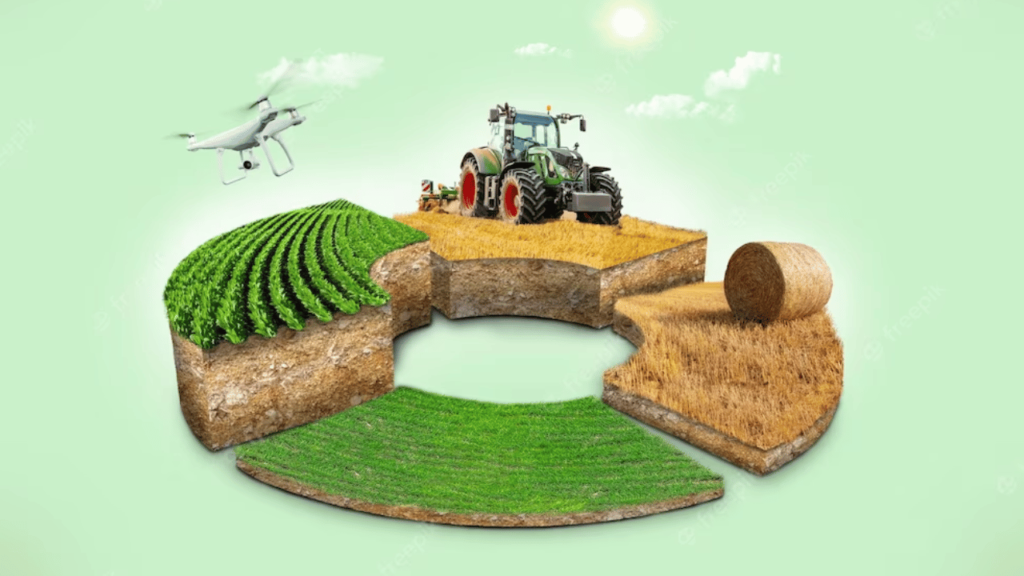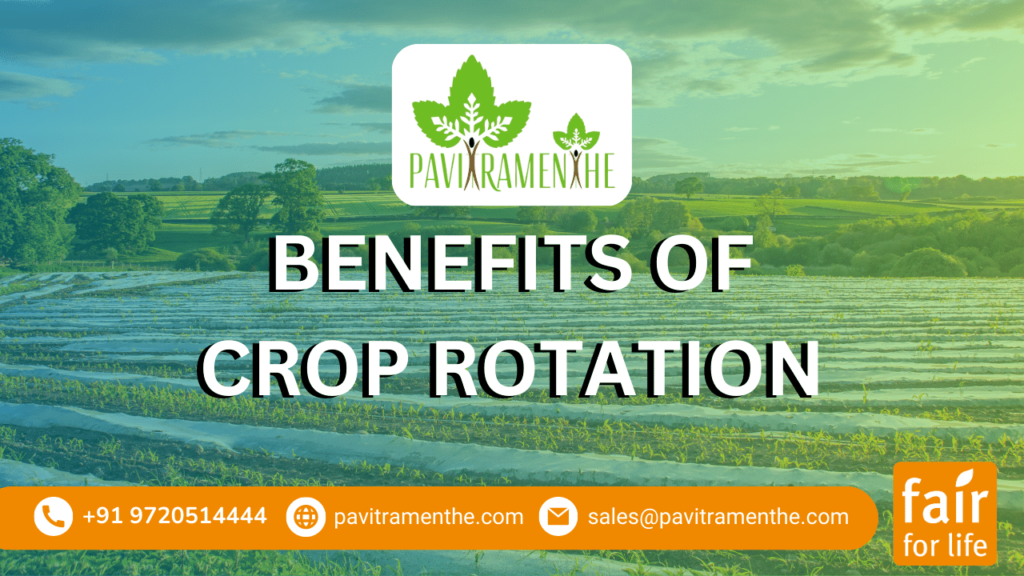Crop rotation is the practice of growing a series of different types of crops in the same area over sequential growing seasons.
It is an important agricultural technique that has been used for thousands of years to improve soil quality, increase crop yields, and control pests and diseases.
Benefits of Crop Rotation:
Soil Health: Crop rotation helps to maintain soil fertility by reducing soil erosion, increasing organic matter, and preventing soil depletion.
Pest and Disease Control: Crop rotation can help to break pest and disease cycles by disrupting the life cycle of harmful organisms that survive in the soil.
Weed Control: Crop rotation can also help to control weeds by reducing their numbers and preventing the buildup of weed seeds in the soil.
Improved Crop Yields: By rotating crops, farmers can increase the overall yield of their fields by reducing the incidence of diseases and pests, and by maintaining soil fertility.
Sustainability: Crop rotation is a sustainable farming practice that helps to reduce the need for chemical fertilizers and pesticides, which can be harmful to the environment.
Needs of Crop Rotation:
Planning: Crop rotation requires careful planning and management to ensure that the right crops are planted in the right sequence.
Diversity: It is important to have a diverse range of crops in the rotation to avoid depleting the soil of nutrients and to control pests and diseases.
Soil Testing: Soil testing is essential to determine the nutrient needs of the crops and to adjust the crop rotation accordingly.
Knowledge: Farmers need to have a good understanding of crop rotation and the crops that they are growing in order to manage their fields effectively.
Flexibility: Crop rotation requires flexibility to adjust to changing weather conditions, market demands, and other factors that may affect crop production.


Overall, crop rotation is an important agricultural practice that offers numerous benefits, including improved soil health, pest and disease control, weed control, and increased crop yields. However, it requires careful planning, management, and knowledge to be effective.
Additionally, It can also have economic benefits for farmers. By diversifying their crops and reducing their reliance on a single crop, farmers can spread their financial risk and potentially increase their profits.
Read This Article:
What is composting and its benefits–
Another need for successful crop rotation is the availability of suitable land. Not all land is suitable for growing certain crops, and some crops may require specific soil types, moisture levels, or other environmental conditions. Farmers must carefully assess the suitability of their land for each crop in the rotation. It also requires proper timing and coordination of planting and harvesting schedules. Farmers need to ensure that each crop is planted and harvested at the right time to maximize yields and avoid conflicts with other crops in the rotation.
Finally, successful crop rotation requires ongoing monitoring and evaluation to ensure that the rotation is working effectively and making the desired improvements to soil health and crop yields. Farmers need to track the results of their crop rotations over time and make adjustments as needed to optimize their yields and ensure the sustainability of their farms.
In summary, crop rotation is a valuable agricultural technique that can benefit farmers, the environment, and society as a whole. However, it requires careful planning, management, and ongoing evaluation to be successful. By implementing crop rotation practices, farmers can improve the health and productivity of their soil, control pests and diseases, and increase their overall crop yields, while also promoting sustainability and resilience in their farming operations.
Read Also-
Conservation Tillage: Protecting Soil Health and Increasing Crop Yields
Cover Cropping & its Benefits
Floor Price Discussion with Farmers: Ensuring Fairness and Sustainability
The Impact of Fair for Life Stores: Driving Positive Change in the Supply Chain:
Health Benefits of Organic Herbs & Spices: A Natural Path to Wellness
Conservation of Biodiversity: Our Planet’s Ecological Wealth
Strong Mandate on Carbon Footprint
What is composting and its benefits
·

